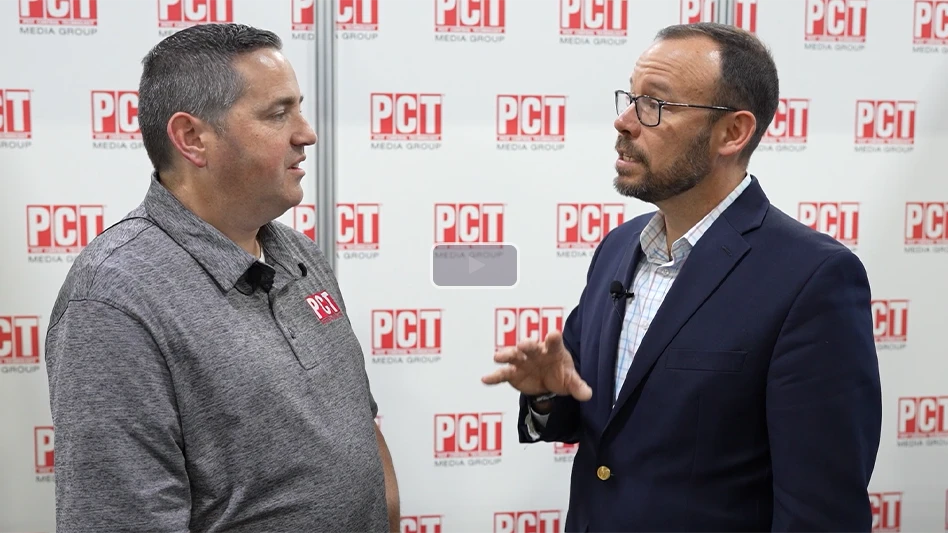 |
I left one of the country’s big-name pest management companies eight years ago to start my own business, Exterminators Inc., of North Georgia. I had seen the positive and negative aspects of the company I was working for, and I was confident that I could build a better business by doing things a little differently.
Part of my eagerness to start my own business was that I really enjoy wearing a lot of different hats — sometimes I like to be a salesman, sometimes a technician, sometimes a termite guy and sometimes the boss. But in a big firm, I was solely a salesman, day after day.
I also became frustrated when situations arose where people needed help that I wasn’t authorized to give. In one household, for instance, children were about to be taken from their parents because the parents couldn’t get the cockroaches under control. They couldn’t pay, so the company didn’t provide services. My company would help in this kind of situation, I thought. I realize you can’t build a business on free services, but you can work with people to create payment plans and terms they can afford. When turning a profit starts trumping quality of life for fellow human beings, I saw it as my time to move on.
I loved having the freedom to decide how my business would operate. I set policies that were quite different from those I had seen at my former employer’s company, but I also identified a few of the strategies that had worked there and decided to adapt them to my business. Turns out these strategies were NOT one-size-fits-all, and I found out quickly that big strategies could quickly push my small business into big debt.
No guarantee.
My first misstep was to offer the same warranty the national companies were offering. I thought I could offer customers a better value, but no one was buying into the package. “You’re a start-up guy in a bad economy,” they would say. “How do I know you’re going to stay in business?”
I couldn’t blame them for that. I knew that I was going to stay in business — by sheer determination if nothing else — but I couldn’t expect them to have the same faith. I thought about what I could do to help customers see I was in this for keeps. So I started adding services.
Landscaping, insulation, pressure washing, gutter cleaning — if there was a household challenge, I was prepared to solve it. By our fourth year, this strategy had us building name recognition and getting referrals like never before. The problem was, I didn’t have the manpower to handle all of those referrals; we were growing too fast. By year five, we started arriving late to calls, needed to reschedule appointments — our customer service was faltering and our reputation took a real hit.
Resolving the issue.
To me, this issue was unacceptable. I reevaluated my business model and looked at potential options for reorganization. I found that it didn’t make sense from a financial standpoint to start paying more people to come in and take care of these handyman services. I also recognized that we couldn’t continue to spread ourselves so thin. I decided to do away with the additional services and to go back to the specialized areas I know best: pest management and termite control.
I also figured out a way to make this change without disappointing our customers: I built a network of local contractors who shared my commitment to quality work, and gave their contact information to customers in need of landscaping or handyman services.
Once we got back into our niche, our growth started making sense. In our first three months of offering pest and termite control exclusively, we grew enough to add a route and an employee. We’ve added a route each year for the past three, as a matter of fact, and now we have two full-time sales reps.
I still want to continue to grow the business at a steady pace, but never so fast that we sacrifice customer service.
When people ask me what they need to know about starting a pest management business, I tell them to stick to their guns — do what you know best and you’ll become your customers’ most trusted resource. There are a lot of opportunities out there to make money. Just make sure you have the knowledge and the business acumen to enter those markets before you make the leap.
As told to PCT contributor Donna DeFranco.
WANT MORE?
Enter your email to receive our newsletters.

Explore the August 2013 Issue
Check out more from this issue and find your next story to read.
Latest from Pest Control Technology
- PCOs Benefit from Putting Distracted Driving Policies in Place
- Photos of Last Summer's Dual Cicada Emergence
- ohDEER Expands to Midwest with First Female Franchisees
- Grow with TAP Today
- USDA Confirms Bird Flu Detected in Rats in Riverside
- Health Risks From Rodent Work
- Pest Stop Announces New Ownership
- Researchers Identify New 'Family Tree' of Termites







